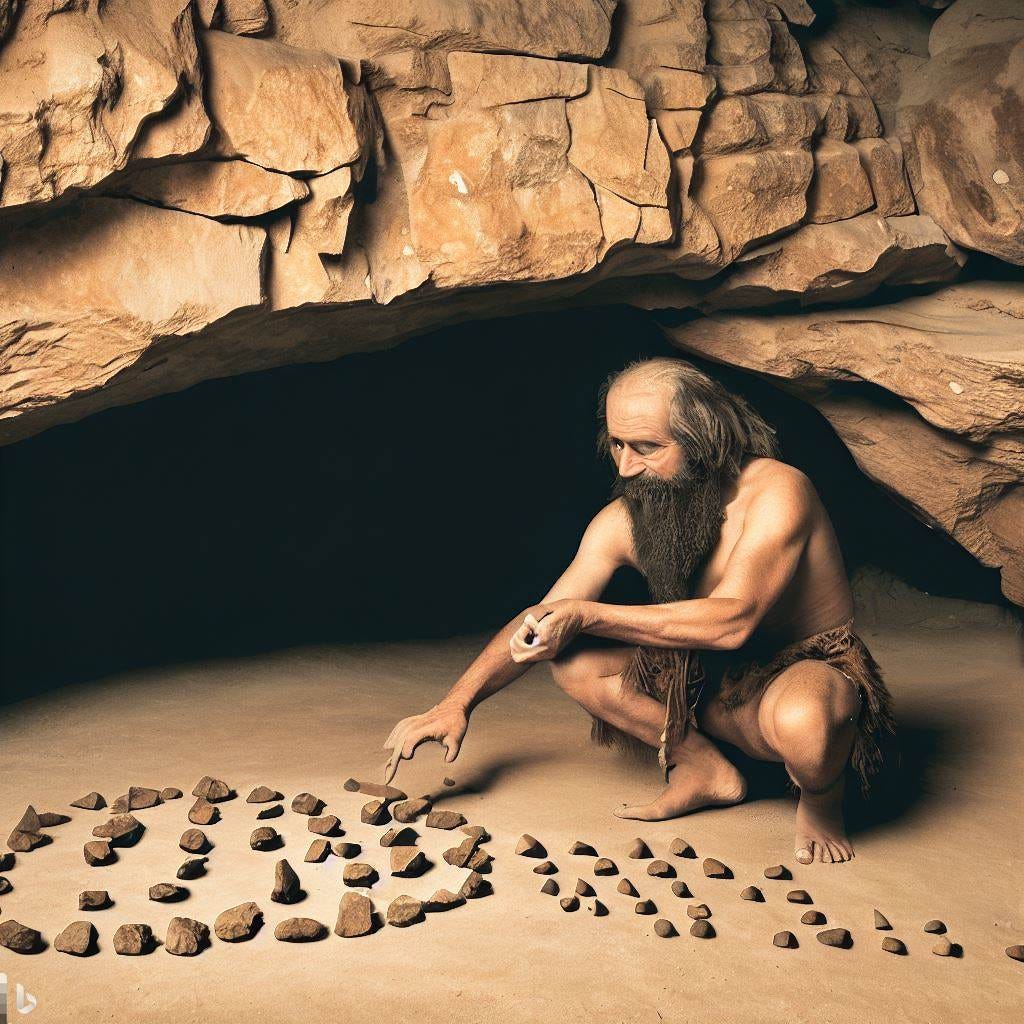Digging Into Boring
And post-apocalyptic escalators.
Digging into Boring
In an episode of HBO’s series, The Last of Us, there is a scene—I don’t think this is a spoiler—in which one of the characters, Ellie, is introduced to an escalator. Now, in the post-apocalyptic world, an escalator—especially a working escalator—is a novelty. Ellie is, charmingly, entranced by it – it’s “so cool!”
In the present moment, assuming this piece isn’t being read in the aftermath of a genuine apocalypse, escalators are at best, well, pedestrian and, at worst, boring. I mean, it’s stairs. Sure, the stairs move, but it’s still stairs.
From this we learn that the same stimulus can be either boring or exciting. Context, when it comes to boredom, as with so much else, is everything.
This fact about escalators is relevant to boredom. Clearly, whatever boredom is, it is not a property of objects or events in the world. Escalators aren’t intrinsically boring or interesting. Boredom is a relational property. This might seem trivial, but lots of “explanations” for human behavior make the mistake of attributing an objective allure to this or that. Why don’t kids play with socks? Well, socks are boring… This claim mistakes socks for being intrinsically boring, a claim undermined by the argument here as well as by Fudge in Tales of a Fourth Grade Nothing. (If you’re not a Gen-Xer, please look up this reference.)
So why is standing on a moving escalator exciting to Ellie in The Last of Us but boring to the rest of us?
It will be no surprise to regular readers of this Substack that I’ll approach this question using the Measure and Motivate model. What, from an evolutionary point of view, is the sensation of “boredom” measuring?
Boredom is measuring the difference between the rewards you’re getting from what you’re doing now compared to some imagined reward of what you could be doing instead. Notice, importantly, that this is a relationship: how much more rewards could I be getting out of my time? Ellie’s perception of escalators differs from ours in a few key respects. The most obvious one is that a working escalator is novel for Ellie and common for us. But novelty per se is unlikely to be a good or complete explanation for why she doesn’t find it dull, to which I return to below.
Instead, I want to focus on a big difference between you and Ellie. Ellie, in her post-apocalyptic world, doesn’t have video games, Tik-Tok, or libraries. (She is enthralled by one of her prized possessions, a short book of terrible puns.) In that world, there’s not much else to do. Or, at least, not much else to do that is, at least minimally, rewarding.
In sharp contrast, if you’re still reading this piece, you are foregoing opportunities to watch Netflix, post to social media, or work for your remote employer. You have very different options from Ellie.
Ok, so in terms of measurement, the feeling of boredom isn’t measuring how intrinsically rewarding something is, as we’ve seen. Instead, it’s measuring how much less rewarding it is than the alternatives.
Imagine Ellie were transported, magically (as it were) to Disney World. Should she find herself on an escalator there, the experience might be suddenly boring, what with Spaceship Earth nearby. If it were taking her, slowly, to the attraction, it might feel suddenly unbearable.
Why should we have an emotion on board that measures how much less rewarding what you’re doing is compared to what you could be doing?
Well, let’s look at the reward part. The sensation of reward is evolution’s way of telling you that you’re doing something fitness-good, so you should keep doing it. If you’re doing something that generates not much reward, you’re doing something that’s generating not much (probabilistic) fitness gain.
So boredom is motivating you to switch tasks. Just for fun, I asked ChatGPT to explain these ideas and here is the way it put it:
Boredom's role as a motivator is to nudge us towards new experiences or challenges that promise greater rewards. Consider the case of a caveman named Ug, sitting idly in his cave, playing the prehistoric equivalent of solitaire (perhaps arranging pebbles into patterns). Ug's boredom would compel him to put down the pebbles and venture outside, seeking new opportunities, food sources, or social interactions. In this way, boredom would have driven our ancestors to explore, innovate, and ultimately increase their chances of survival and reproductive success.
I’m not sure I would have gone with a caveman named Ug but, sure, that more or less makes the point.
Ok, let’s circle back to novelty. Generally, things that are novel are more rewarding because you learn something from them, and learning is fitness-good. So fair enough.
But it can’t be just anything novel. I mean, every time you take a walk, you encounter a person, rock, drainpipe, or whatever that you haven’t encountered before. It’s not that much fun finding a new (to you) drainpipe. So not all novelty is created equal. There’s novel and then there’s novel. A new masterwork of art is interesting even if you’ve seen many paintings before.
The thing about novelty and learning is that in many cases, there are diminishing returns. That is, the rate at which you learn about things decreases over time because as you learn about something, the amount left to learn decreases. It’s cool to find a working escalator and see the Mona Lisa, but you saturate on both before too long. In every moment of an experience, you learn a little less than the moment before. Importantly, because returns diminish, this changes the comparison over time between what you’re doing and the other options. As the (absolute) value of continuing to stare at the Mona Lisa diminishes, the relative appeal of moving on to a work by a lesser artist increases. Hence, seeing the Mona Lisa is great, but eventually you move on to the Rodin museum and then also get bored of seeing The Thinker. Diminishing returns explains, generally, why things that are novel are less boring: because the point of diminishing returns hasn’t been met. Related, diminishing returns explains why it’s difficult to persist on taxing tasks.1
Still, there seem to be a significant number of activities that don’t get more boring over time. Addictions are like this. Take gambling. People can persist for very long periods of time in front of a slot machine. It doesn’t seem like one is learning much from a slot machine, and certainly not more on the 100th pull than the 50th. However, slot machines are giving the gamblers little rewards as they play. Three sevens here, a straight there. As is well known, these machines are programmed to provide rewards in way that will keep the customer’s attention. But, of course, it’s a losing proposition: the house always has an advantage.
Is there anything in your life that resembles gambling, that keeps you coming back for more even if you’ve been at it for a while? How long has it been since you checked how many likes your Instagram post or your tweet has received? Social media has been engineered with the same principles, delivering little doses of reward in the form of social approval to keep your eyes on the feed.
This engineering is possible because casinos and platforms such as Twitter and Facebook have been able to apply what is known about reinforcement to keep customers coming back. The learning literature draws a distinction between primary reinforcers—food, sex, water—and secondary reinforcers, such as money… and likes. Primary reinforcers have a more or less obvious evolutionary rationale and are intrinsically fitness-good. Secondary reinforcers are not intrinsically fitness-good, but are linked to reward. The key point is that businesses benefit from finding effective and efficient secondary rewards to give you… for the right price. This represents a big challenge of modern life. Casinos and social media companies are presenting you with rewards to tempt you out of boredom, but these temptations are designed to benefit the companies, even if there are limited benefits—or costs—to you. This idea should lead you to reflect on whether the way you want to cure your boredom is turning to these reinforcers. You might, but it’s helpful to recognize that these cures for boredom are importantly different from the cures that the boredom system was originally designed to motivate you to seek. In the past, no one was making money by effectively recruiting your attention. Today, however…
I mentioned above that I asked ChatGPT-4 to write some of this piece, and some of the text was pretty charming, so I’ll let it have the (slightly edited) last word:
Like a disgruntled diner at an all-you-can-eat buffet eyeing a gourmet meal on the next table, boredom emerges when we believe there's something better out there.
And so, boredom, often dismissed as a mere nuisance, is revealed as a sophisticated and vital emotion. It measures the gap between our current rewards and those we might obtain elsewhere, motivating us to seek out more rewarding experiences that improve our evolutionary fitness. Far from being a trivial annoyance, boredom is a secret agent of evolution, nudging us towards greater achievements and driving the ever-advancing march of progress.
So the next time you find yourself yawning at a dreary PowerPoint presentation … remember that boredom is not merely an inconvenience – it's a gentle reminder from our evolutionary past to seek out more rewarding experiences and strive for a better future.



